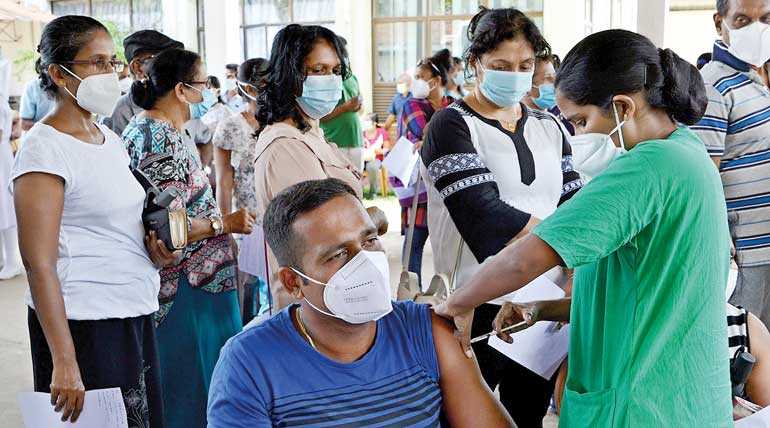Saturday Feb 28, 2026
Saturday Feb 28, 2026
Tuesday, 9 March 2021 01:57 - - {{hitsCtrl.values.hits}}

Although women comprise up to 70% of health professionals in the region and globally, they do not occupy a corresponding proportion of leadership positions – Pic by Shehan Gunasekara
By Dr. Poonam Khetrapal Singh
Women from across the South-East Asia Region have played a vital role in the COVID-19 response and must continue to be empowered to help shape a more equal future and recovery from the pandemic.
Although women comprise up to 70% of health professionals in the Region and globally, they do not occupy a corresponding proportion of leadership positions. Rapid and sustained action is needed to elevate women’s leadership and voices in the health sector and beyond, and at all stages of the pandemic response and recovery.
WHO continues to support all countries in the Region to implement gender-sensitive pandemic response plans that empower women and girls, for example by providing equitable access to testing and treatment for COVID-19, by advocating for women and girls’ adequate representation in research and clinical trials, and by making specific efforts to maintain and adequately resource health and social support services that address gender-based violence.
In some countries, helplines for survivors of gender-based violence have registered an increase in calls of more than 30% during so-called “lockdowns”, underscoring the critical need for health and social support services to remain fully operational.
Ongoing action is needed to maintain and expand access to quality sexual and reproductive health services throughout the response, recovery and beyond. Though most sexual and reproductive health services in the Region have been operational for many months, remaining gaps must be identified and filled to ensure that no woman or girl is left behind. Targeted action is needed to address the concerns of women and girls and overcome unresolved demand-side barriers. Every woman and girl must feel comfortable and safe when accessing the services they require to stay healthy and well.
Women-led organisations have a critical role to play in COVID-19 vaccination campaigns. Women have been at the fore of the Region’s many immunisation successes, from achieving and maintaining polio-free status to eliminating maternal and neonatal tetanus as a public health problem. They are central to the Region’s efforts to eliminate measles and rubella by 2023 and to end cervical cancer. In the coming weeks and months, women-led organisations must be empowered to promote community buy-in and overcome gender-related barriers to vaccine access. Women’s leadership will help bring this pandemic to an end.
On International Women’s Day, WHO reiterates its commitment to uphold women’s rights and to leverage the full potential of women’s leadership in the health sector and beyond. We all benefit when women’s voices are central to the policy-making process and when women are empowered to shape governance for health in new and effective ways. We must grasp the opportunity to drive real change and build a fairer, healthier “new normal” that outlives the current crisis. A gender-equal Region and world is possible. Together we must act.
(The writer is WHO Regional Director for South-East Asia.)